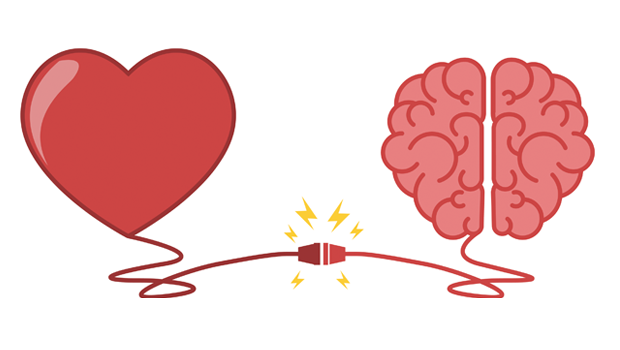Last Updated on October 15, 2022 by Editors Desk
Main highlights:
- What is Emotional intelligence?
- Importance of emotional intelligence
- How to increase emotional intelligence?
What is emotional intelligence?
It is the capacity to recognise and control your own emotions as well as those of others. Naturally, recognising and controlling your emotions are two entirely different things, as are your feelings and those of another person. Internal motivation, self-regulation, self-awareness, empathy, and social awareness are the five subcategories of emotional intelligence.
Importance of emotional intelligence
“Until people know how much you care, no one will care how much you know.”
Being a human involves having emotions, and the EI quotient is what makes us who we are. EI enables people to prioritise their own well-being as well as the welfare of others.

The ability to lead and inspire others is a trait of emotional intelligence. Consequently, they will be able to build good relationships and succeed in work. Moreover, in our private lives.
10 Ways to improve emotional intelligence
Work on being aware of your emotions.
We frequently lead frantic, busy lives, making it all too easy for us to become emotionally disconnected. Set timers at different parts of the day to help you reconnect. Take a few deep breaths when the timer goes off and pay attention to your emotional state. Pay attention to the location and nature of the experience where the emotion is manifesting itself physically in your body. It will become more automatic the more you practise.
We comprehend ourselves better when we have a higher level of self-awareness. After that, we are able to pinpoint the modifications we want to make as well as our strengths, allowing us to capitalise on them. Setting goals generally begins with self-awareness. Admitting you don’t know the answer and taking responsibility for mistakes are part of this.
It is simpler to comprehend others and their emotional states if we learn to accept ourselves.
Be mindful of your actions.
Take the time to observe your behaviour as well as your emotional awareness while you practise. Examine your behaviour and how it impacts your daily life when you’re feeling a particular emotion. As we grow more aware of how we react to our emotions, managing them gets simpler.
Recognize and comprehend your feelings in different situations. You can influence them if you analyse them. Your emotions cannot control you if you pay this much attention to your ideas and feelings. Unless you decide to give them the advantage.
Challenge your own beliefs
In today’s highly linked world, it is simple to get caught up in an “opinion bubble.” Your personal beliefs are constantly reinforced by other people who share your ideas in this condition of existence. Spend some time reading the opposing viewpoint to question your assumptions (even if you still feel they are right). You’ll be able to understand others and be more open to new ideas as a result.
You will feel more emotionally liberated by self-questioning. Being emotionally stuck is best described as feeling numb, as though your heart is suffering from psychological constipation, and as having lost your way. All of us occasionally go through something like this.
Remember to breathe!
We encounter many different situations in life, and the majority of us routinely feel stressed out. Remember to breathe to keep your emotions under control and prevent emotional outbursts. To preserve your composure and give yourself a chance to gather your thoughts about what is occurring and how you should react, call a timeout and do anything like wash your face with cold water, go outside for some fresh air, or make a drink.
Always remember to take little pauses, carve out time for yourself, choose a hobby, or do nothing. Do nothing, that’s correct. The act of relaxing can be a work in and of itself.
Good nutrition is important.
Although it may seem simple, controlling your diet and drinking habits can have a significant impact on your mental state. Do your best to keep a balanced diet.
We learn at a young age that eating healthfully makes us feel and look our best. We don’t frequently hear that a healthy diet also has a big impact on our mental health. A balanced, healthy diet can improve our ability to think clearly and make us feel more alert. Additionally, it can lengthen and focus attention spans.
On the other hand, a poor diet can cause weariness, sluggish decision-making, and slower reaction times. In fact, eating poorly can make stress and sadness worse and even set them off.
Keep it real.
When you set a new goal, be sure to offer yourself specific, attainable objectives to help you achieve it. Also, remember that change is an inherent aspect of life. See how it works? Success increases self-confidence, which then increases one’s capacity for more success.
Try to have as few and only reasonable expectations as you can. The likelihood of disappointment is automatically reduced when expectations are lower.
Read literature
Research demonstrates that reading books with complex characters can increase empathy. Reading accounts from other people’s points of view can help you become more socially aware since it gives you insight into their beliefs, motives, and behaviours.
According to a number of recent studies, reading fiction is substantially associated with greater levels of emotional intelligence, including empathy, understanding of others, and critical thinking. Discussion groups guided by facilitators regarding fiction can improve psychological safety for employees and help organisations become stronger.
Request critiques
Assess your perception of yourself by getting feedback on it from your supervisors, coworkers, friends, or family. For instance, inquire about your ability to handle conflict, your adaptability, or empathy, and your response to challenging circumstances. Even if it might not always be what you want to hear, you’ll probably find that it’s what you need to hear.
Listen
Since understanding what someone is saying is a prerequisite for being able to empathise with them, listening is at the core of empathy. It entails listening to them without interjecting, having no preconceived notions, being sceptical, and pausing your own problems so you can take in their situation and give their feelings some thought before you respond.

Let the person air everything out. You must be mindful of your facial expressions as well; there should be no indication of condemnation or uncertainty.
Not what you say, but how you say it, matters.
Certainly, actions speak louder than words. The other person’s reaction to what you say might not be as significant as how you claim it would be.
We’re discussing the value of nonverbal cues and how they might impact how someone perceives you. To communicate your emotional state to others, use eye contact, body language, and voice tone. So, after you’ve kept your emotions in check, consider your physical presence.



